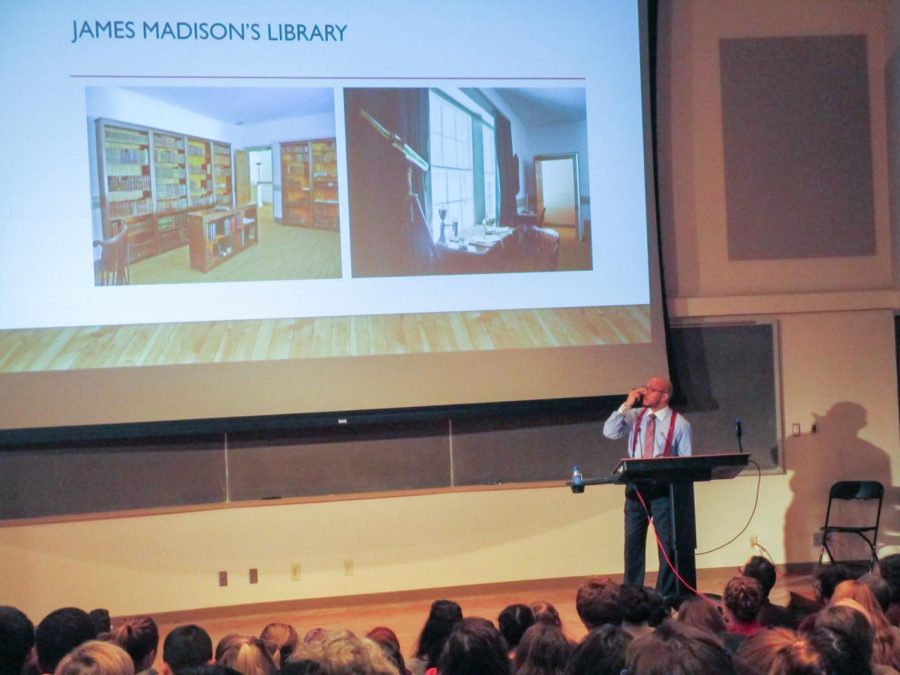Dr. Hasan Kwame Jeffries lectures on ‘hard history’
Dr. Hasan Kwame Jeffries speaks to students, faculty, staff and community members about “hard history” in Olin Auditorium on Thursday Dec. 5. Photo contributed by the SEC.
December 12, 2019
Last Thursday, Dec. 5, Ohio State Associate Professor of History Dr. Hasan Kwame Jeffries gave a lecture titled “1619 An American Journey – 400 years of tragedy and triumph.” Olin Auditorium was filled to capacity as people entered to hear Dr. Kwame Jeffries talk about the “hard history” of America.
Kwame Jeffries describes “hard history” as the history that is hard to think about, talk about, teach about and to learn about.
“America has problem confronting truthfully and honestly what I call ‘hard history.’ These aspects of the American past almost always revolve around the intersection of racism and racism. But, we have to engage this history so we can disrupt the continuum of personal prejudice and institutional discrimination,” Kwame Jeffries said in an email to The Wire.
Junior Jordon Crawford shared why hard history is important to discuss.
“It reminds us that all the privileges that we share come from a place of dehumanization and exploitation and that subsequently, we all have a responsibility going forward to ensure that history doesn’t repeat itself,” Crawford said.
Kwame Jeffries explained three responses to hard history: historical amnesia, rationalizing the evil and creating false narratives.
Junior Zidane Galant-LaPorte was one of the students who attended the talk. According to Galant-LaPorte, the concept of hard history is important for students to grapple with. She took note of the three responses Kwame Jeffries offered at his talk.
“The three responses to ‘hard history’ really stood out to me because I saw myself reflected in some of those responses, which was hard yet also enlightening,” Galant-LaPorte said. “You don’t know what you don’t know until you know.”
Galant-LaPorte learned more in-depth practices of teaching and understanding American history from the talk.
“Having that understanding of power within education is so important in resisting and unlearning a decade of misinformation,” she said.
Kwame Jeffries is passionate about sharing concepts of history with students.
“The past informs the present. If we don’t deal honestly with the difficulties of the past, we can’t deal honestly with the difficulties of the present,” Kwame Jeffries said.
Kwame Jeffries wants students to realize their responsibility with American history.
“They are not responsible for the inequality that defines America’s past, but they will be held responsible for the inequality that defines America’s future if they don’t begin to do something about inequality today,” he said.
At the end of the lecture, Crawford got up and posed a question to fellow students and community members: “What now?”
In an email to The Wire, Crawford elaborated on this question.
“What are we going to do after sitting (or standing) in the Olin auditorium for an entire two hours and hearing the facts?” Crawford said. “Are we gonna remain apathetic and indifferent? Or, are we gonna get up and demand accountability for the ills of the past and press on for a better, more equitable future?”






